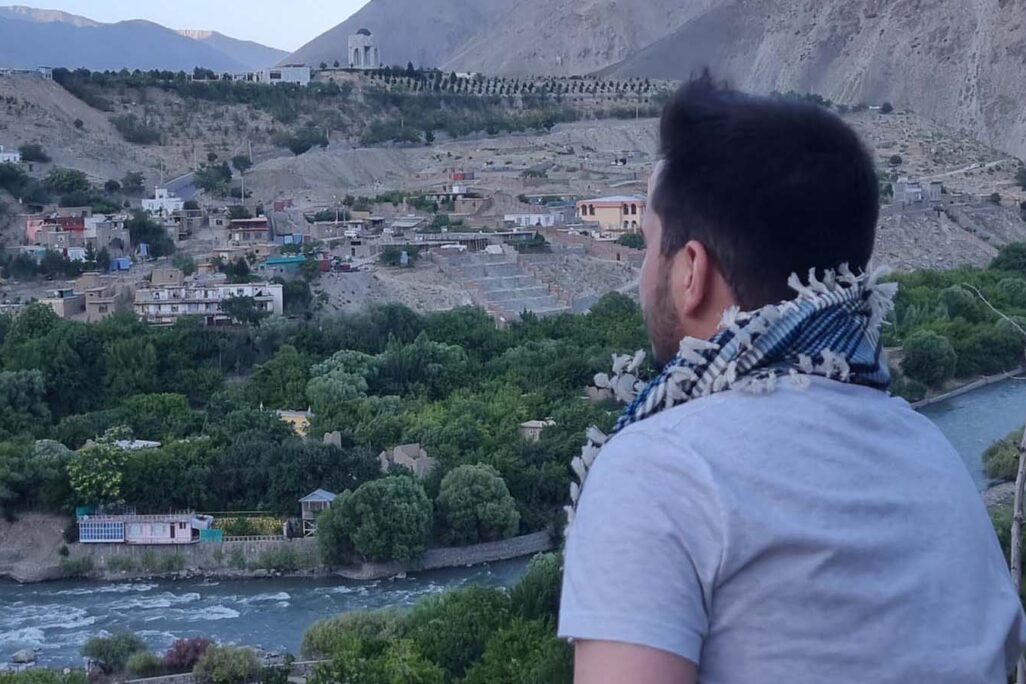
“If they say that Afghanistan is the death trap of the empires, then Panjshir is the death trap of Afghanistan,” journalist Itai Anghel told Davar in an interview last month. “This mountainous region has a rich history of separatism and freedom. It is no coincidence that even today the strongest resistance unit against the Taliban operates there.”
Panjshir Province, the name of which literally means “Five Lions” in a reference to legendary heroes of the city, was the center of the opposition to British colonialism and the homeland of legendary leader Ahmad Shah Massoud, who defeated the Soviets and briefly unified disparate Afghan groups during the resistance of the 1980s.
“In the last few weeks there has been an influx of elite, American-trained units of the military, as well as everyone who preferred not to surrender to the Taliban,” Muhammad (whose name has been changed) told Davar. Muhammad is the secretary to the Panjshir-based Amrullah Saleh, who was vice president of Afghanistan until a week ago and has recently declared himself “caretaker president” of Afghanistan after President Ashraf Ghani escaped the country. “We have a lot of weapons, including heavy weapons,” Muhammad said. “Food and water are not lacking. We are living in heaven. What is missing is gas, which the Taliban has blocked from us, and brave fighters who will help us liberate all of Afghanistan.”
Muhammad, 26, escaped from the capital city of Kabul to the separatist province along with Saleh, just days before the Taliban captured the city. Both Muhammad and Saleh grew up in Panjshir. Their parents were underground fighters who managed to liberate all of Afghanistan. Saleh grew up during the 1980s, when Shah Massoud led the uprising against the Soviets, and Muhammad grew up in the 1990s, during the period in which Massoud’s men, with the help of NATO forces, defeated the Taliban. Additional resistance leaders have also come to Panjshir, including the Minister of Defense Bismillah Mohammadi.
Muhammad reflected on his experience of the Taliban back in the summer of 2016. He was 22, a student at the American University in Kabul, when the Taliban attacked the university building with a car bomb and a unit of armed terrorists. “My friends and teachers were murdered at the university,” Muhammad said.
“A few weeks later we demonstrated against the Taliban in the center of Kabul and a suicide bomber exploded in the heart of the protest. I was standing eight meters from the blast and miraculously survived, but my friends were killed. We had big dreams. We grew up in a pretty quiet country, educated to be secular, and we believe in the same values of justice and freedom that you hold in Israel. When we got older, the Taliban got stronger and the attacks began. We didn’t believe it would come to this, the Taliban controlling the whole country. Now we have no choice but to put aside all our dreams, go underground, and fight for our country.”
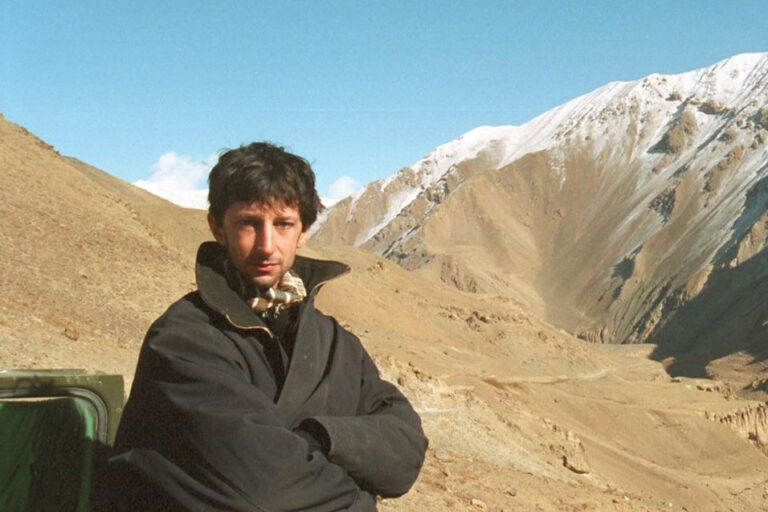
Anghel visited Panjshir 20 years ago and witnessed the people of Panjshir alongside NATO forces liberate Afghanistan from the clutches of the Taliban. To him, Panjshir has a mythic status. “Foreigners never conquered Panjshir. Neither has the Taliban either. The whole myth that Afghanistan cannot be controlled comes from Panjshir,” Anghel said.
“Panjshir is a narrow valley in the heart of the Hindu Kush mountain range. I recall the journey there and the fear comes over me again. It was such a difficult ride. You take a narrow, unpaved road, on the edge of an abyss. One of those paths of death. It was a nightmare. One of our cars overturned on the road and it took many long hours to arrive. We felt like the journey was more dangerous than the Taliban was.” Anghel explained that Panjshir’s isolation provides “field conditions that are a guerilla fighter’s paradise.”
However, it wasn’t just topography that led to the defeat of Genghis Khan in the thirteenth century, the British in the nineteenth, and the Soviet Union in the twentieth. “The residents of Panjshir are undefeatable due also to their unity and their obstinacy,” Anghel said.
He described the Afghans as “a warm people, terrific hosts. But on the other hand, they’re tough. People of freedom. The idea of succumbing to another ruler is inconceivable. When I asked them if they would succeed at ousting the Taliban from Kabul, they replied by shouting, ‘We will not surrender. We will not bow to them.’ I heard this from people who defeated the British and the Soviets, so it does not surprise me that they continue to fight today.
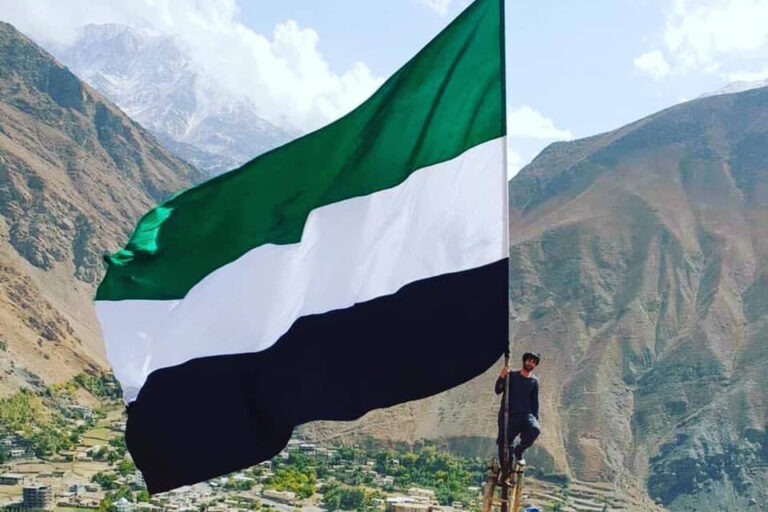
“Afghanistan is not a nation. It is a vast mixture of tribes, from different nations, who fight each other according to family and religious loyalties. There is so much chaos in this country that any place with order and discipline is already at a huge advantage. The people of Panjshir are organized, but their numbers are negligible compared to the Taliban, and the Taliban, too, is organized, armed, and supported from the outside.”
“Panjshir mainly consists of Tajiks,” Nisr (whose name has been changed) told Davar. Nisr is a 27-year-old Afghan who grew up in Panjshir and currently lives in Kabul. The Tajiks are the second-largest ethnic group in Afghanistan after the Pashtuns, making up one-third of the country’s population.
“Shah Massoud’s brilliance was incorporating additional minorities in the ‘Northern Front’: Uzbeks, Turkmens, Persians, and Hazaras. Most of the fighters in the underground currently operating in Panjshir are Tajiks, but there are many minorities, including Shiites, unlike most of the other minorities who are Sunnis.”
Another source, a member of the Hazara community, told Davar that Hazaras in Panjshir are indeed participating in the underground alongside Tajiks and other minorities. The source noted that Hazara people in other regions of Afghanistan are working to establish an additional underground in the hopes of ultimately unifying all of the militias run by different minorities to fight together against the Taliban.
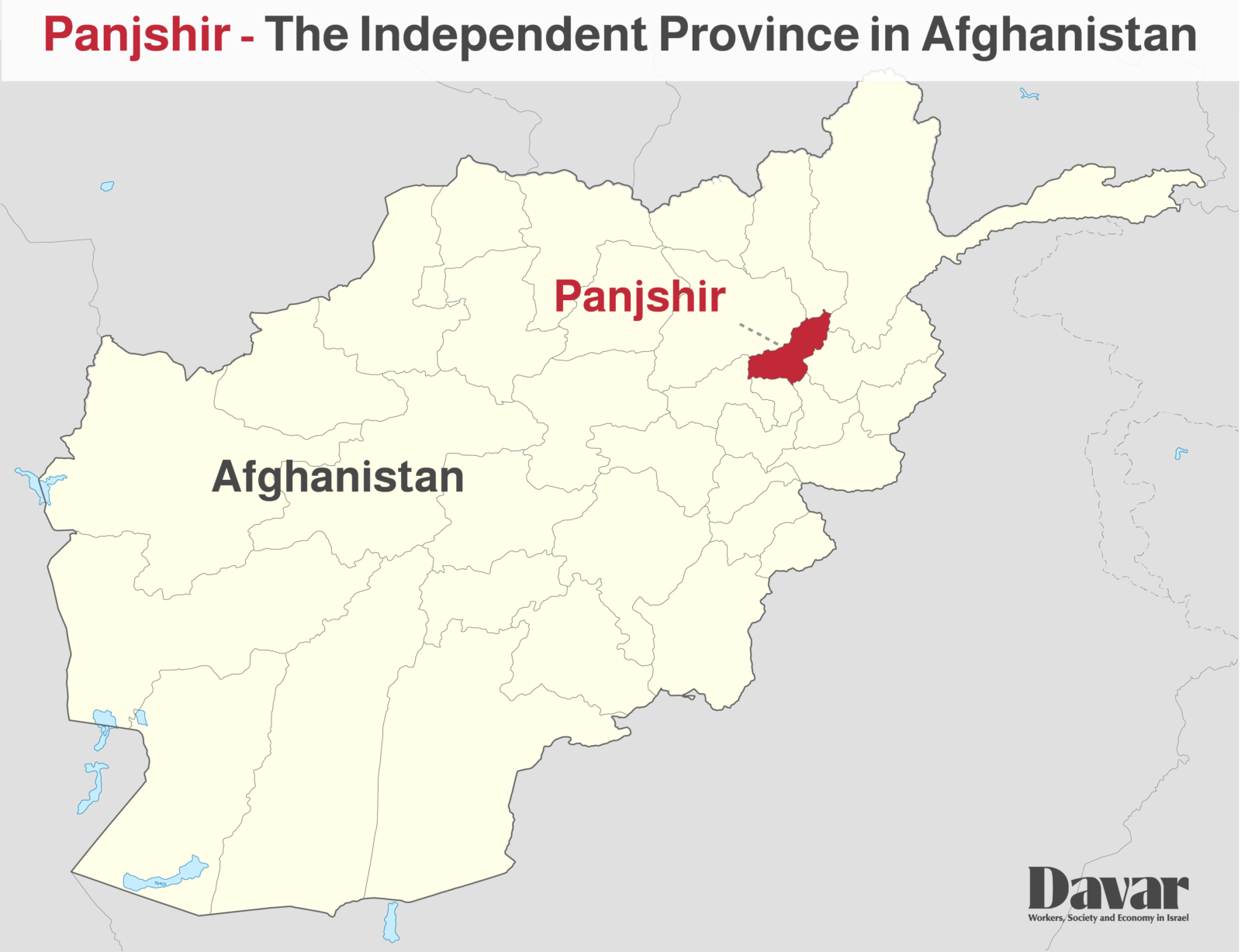
Last month, as Taliban fighters captured Kabul without a fight, residents of Panjshir hoisted the flag of the “Northern Front,” the force that rose up against the Taliban in the 1990s under the leadership of Shah Massoud and ultimately earned backing from the West. Ahmad Massoud, Shah Massoud’s 32-year-old son, was quick to publish an article in the Washington Post where he declared the beginning of a “resistance” to the Taliban, and called on the world to aid the fighters in Panjshir by providing ammunition. Under that headline “The mujahideen resistance to the Taliban begins now. But we need help,” he explained that as a nine-year-old he sat with his father in a cave amongst the brave fighters of Panjshir and met the French-Jewish philosopher Bernard-Henri Lévy. “When you fight for your freedom,” Lévy said to the fighters who were in the midst of the campaign against the Taliban, “you fight also for our freedom.”
During a constructive meeting w French President H.E. @EmmanuelMacron at Élysée Palace, I thanked him & France for honoring Comdr Massoud. We discussed advancing Afghanistan-France relations & French/EU cooperation in bringing a just/lasting peace, stability & prosperity in Afg. pic.twitter.com/QVg2u5H0F5
— Ahmad Massoud (@AhmadMassoud01) March 29, 2021
The Northern Front’s legacy persists even after Shah Massoud’s assassination. “Osama Bin-Laden knew a siege would be waged against him,” Anghel explained. “Afghanistan could serve as a shelter for him, but there was one problem: Massoud’s Northern Front. So two days after the September 11 attack, he sent two suicide bombers disguised as journalists to interview Massoud. During the interview they activated their explosive belts and thus murdered him. When I arrived to Afghanistan I saw his picture everywhere. I don’t think that there has ever been a leader in Afghanistan’s history who earned such widespread support from different groups and tribes. His murder is still traumatic for them today, 20 years later.”
***
“The Afghan military has fallen apart in the last few months,” Muhammad said. “Some of the soldiers joined the Taliban in exchange for money, and some have fled the country. But the brave fighters did not give up. They found their way and came to us in Panjshir. They came here from different provinces of Afghanistan because they knew the rebellion will start here.”
More than half of Afghanistan’s population did not personally live through the Taliban’s rule. The young Afghan people grew up in a country that was free but intensely vulnerable. The attempt to instill a democratic regime was accompanied by corruption and occasional brutal attacks carried out by the Taliban, ISIS, and Al-Qaeda. “Most of the Afghan people live in fear of the Taliban. I am sure they will support us,” said Muhammad.
“The Taliban fighters are currently trying to convince Afghans and the whole world that they have changed, that they will offer rights to women and won’t harm minorities, but this is a lie. Just yesterday they murdered a woman in the street because she was not wearing a burqa.”
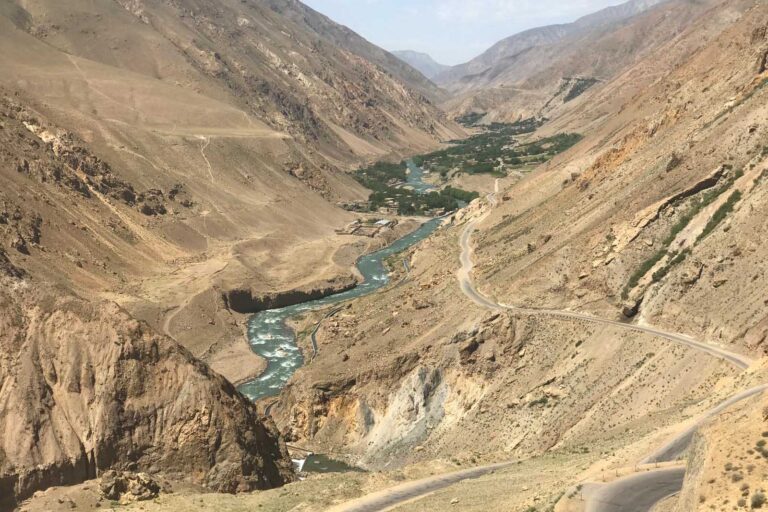
Other sources report witnessing similar atrocities. “With my own eyes I saw an armed Taliban fighter strike a man just because he was wearing jeans,” Nisr says. “Whoever thinks the Taliban has changed does not understand what they are. One hour after the Taliban’s speaker announced on television that there would not be revenge killings, they had already gone from door to door and arrested people. Yesterday I saw them gathering soldiers who aren’t Pashtun — they took their weapons and sent them home. They talk about rights for all the minorities, but they don’t allow anyone who isn’t Pashtun to bear arms.”
United States Congress member Mike Wallace, a Republican from Florida and former commander of American troops in Afghanistan, called on President Joe Biden to support the underground with the $3.3 billion remainder of the budget for the war in Afghanistan. For his part, Biden did not speak about the underground, and the White House has refused to respond to journalists’ inquiries about it.
“The United States and its allies have left the battlefield,” Ahmad Massoud wrote, “but America can still be a ‘great arsenal of democracy,’ as Franklin D. Roosevelt said … Know that millions of Afghans share your values. We have fought for so long to have an open society, one where girls could become doctors, our press could report freely, our young people could dance and listen to music or attend soccer matches in the stadiums that were once used by the Taliban for public executions — and may soon be again.”
American commentators explained to Foreign Policy magazine that if the Panjshir underground manages to liberate the northern Badakhshan province, it will be able to control the border passage to Tajikistan, a country that supports the underground. The problem is that the Taliban has become much stronger in northern Afghanistan. In the 1990s the Northern Front controlled a vast territory in northern Afghanistan, more than 10% of the country’s territory. Currently, it controls only a small enclave far from the border. The commentators explained that the Taliban has strengthened its control of the northern borders and that it enjoys generous support from Russia, China, Pakistan, and Iran.
Iran, which shares a 921-meter border with Afghanistan, was the first to acknowledge the Taliban’s rule. “They congratulated the Taliban for its victory before even Pakistan did,” Muhammad said. “In the last few years I have managed the government unit for the fight against organized crime. I tried to stop Taliban criminal organizations that trade in drugs and dollars on a huge scale with factions linked to the Revolutionary Guards [the Iranian military branch designated as a terrorist group by the United States]. The Taliban is one of the Revolutionary Guards’ most significant cash pipelines. And it isn’t just the trading: in the last few years we built a line of hydroelectric pipes along the rivers that flow from Afghanistan to Iran, the biggest of which is the Kamal Khan Dam in the Nimruz province. The Taliban sent dozens of attacks to prevent the building of these dams, and it is clear that the Iranians paid them for this. Now that they have captured the area that borders Iran, they simply opened all the dams. And it isn’t just Iran, they are also partners with Hamas and Hezbollah. So I am saying that Israel must help us. We need military consultants and intelligence. You will only stand to gain if you help us. Be brave. Stand with those who fight evil. You see what is happening on television, you see that a jihadist terror organization has taken control of a country. Stand by our side.”






